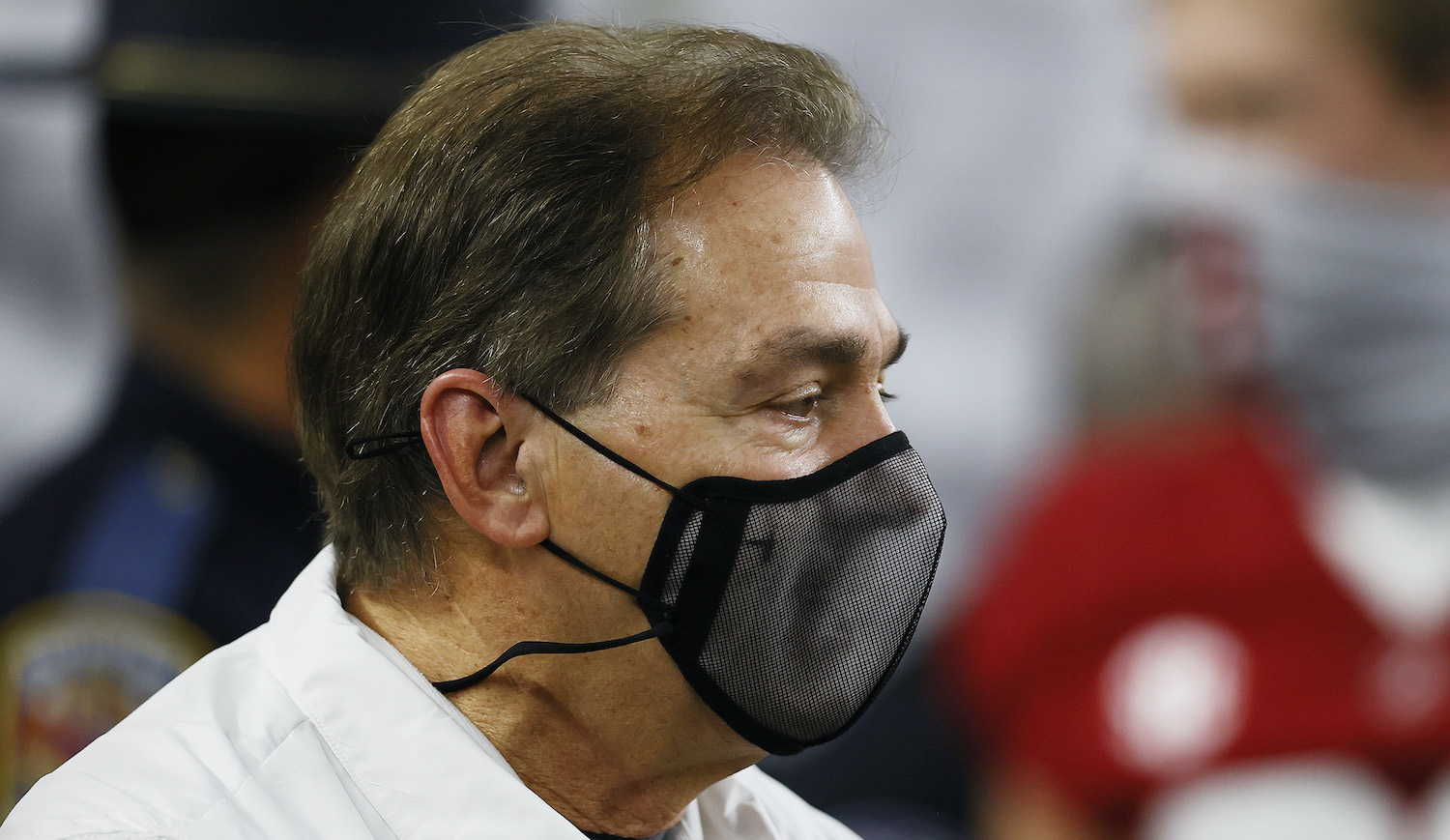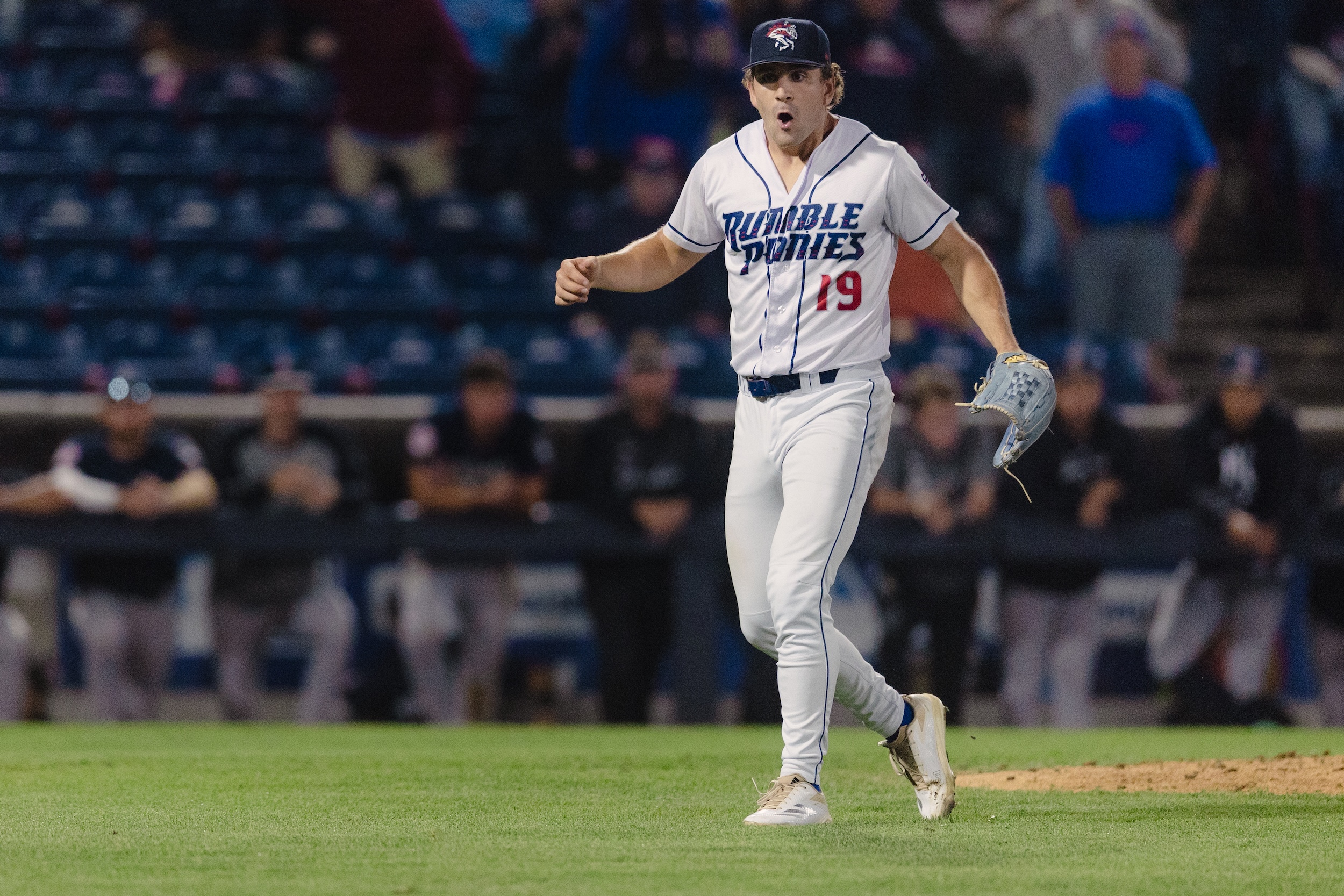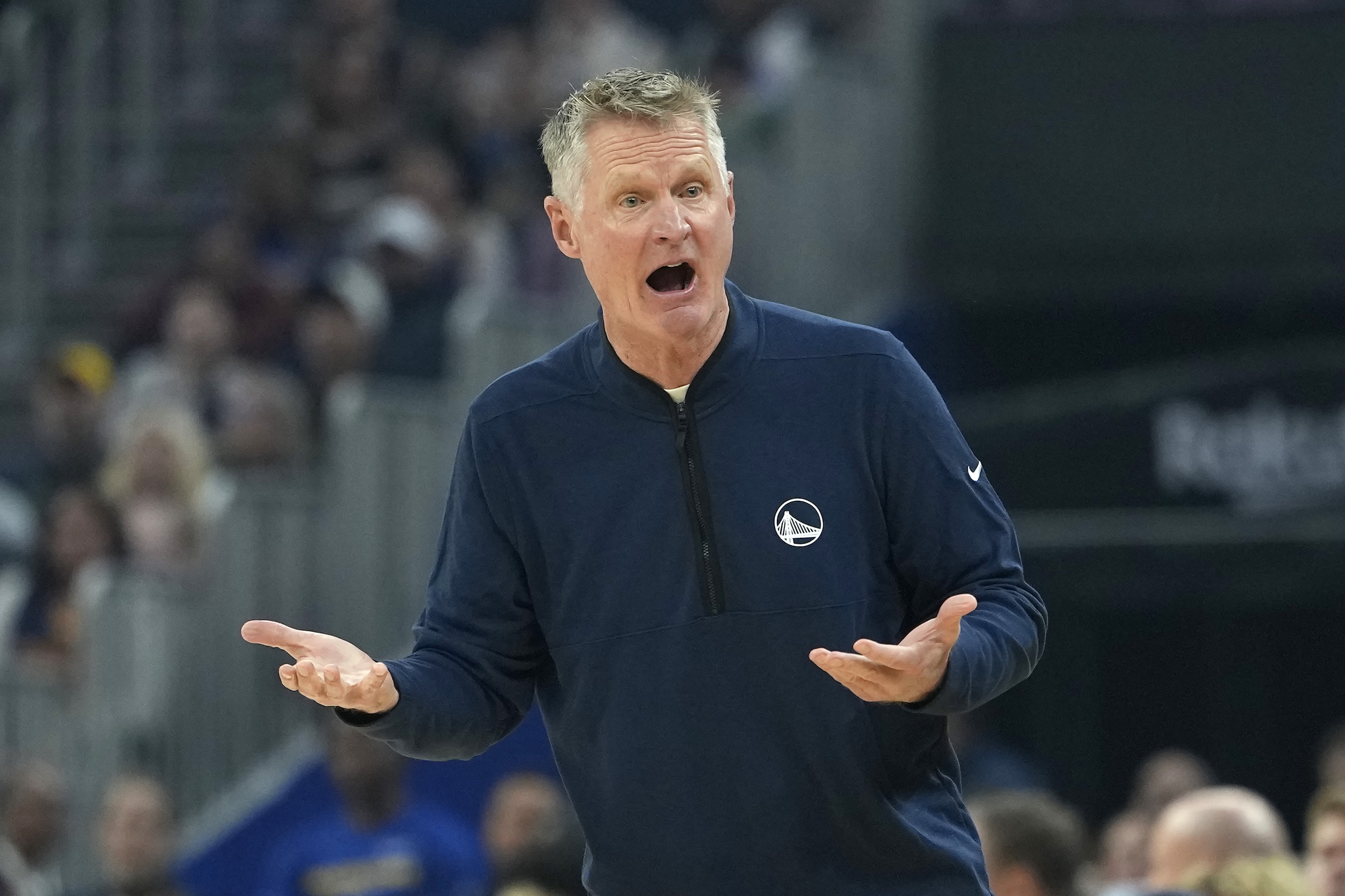Every major sports league in the world is sagging under the weight of the Omicron variant of the coronavirus, which has forced leagues to postpone games, tear up their old protocols and write new ones, and flesh out depleted rosters by tactically remembering some guys. Every league is handling it in its own way, with the NHL going into hibernation, the NFL running it down mid, and the NBA bringing you marquee Christmas Day matchups featuring Lance Stephenson, Brandon Knight, and Joe Johnson. None of those outcomes are ideal—Stephenson's return aside—though each league's season is long enough that they can probably weather this period with relatively little turmoil, whether they should or not. The College Football Playoff, however, does not have the same temporal or structural luxuries.
On Wednesday, the NCAA released new protocols for the CFP, which will not be meaningfully rescheduled in the event of outbreaks. The two semifinal games scheduled for New Year's Eve will not be moved at all if any of the four teams can't play. Any team that cannot field enough players—a threshold is never stipulated—will forfeit, and their opponent will advance. If both teams in one game have to forfeit, then the other matchup becomes the national championship game. If three teams have uncontrollable outbreaks, then the last team standing will win the title. The national championship game is scheduled for Jan. 10, and the new protocols allow it to be pushed back no later than Jan. 14.
The new NCAA rules also applied to the Fiesta and Peach Bowls, which have a one-week rescheduling window if any of the teams involved has a COVID-19 surge. All personnel on the field for any of the three CFP games will either have to be fully vaccinated or test negative within 72 hours of kickoff. Awarding the national championship by legal verdict would be anti-competitive and somewhat fraudulent, though you have to consider the potential upside: Cincinnati becomes the national champion in a way that would make the most SEC people furious.
"We certainly wish we were not in this position," CFP executive director Bill Hancock said in a press release, "but the only responsible thing is to take whatever actions we can reasonably take to better protect those who play and coach the game." College football teams don't have the ability to call on the same reserve of willing and able players that, say, the NBA does. Nor can they keep pushing the title game back further into an uncertain future. Their players are also not professionals and are not organized, so they have no voice in any of these proceedings. This next month is about the worst time in the past two years to have an un-cancellable football game, yet thankfully, the college football world has been broadly resistant to COVID-19 issues, right?
Ah, well:
Because of a COVID outbreak, Texas A&M is unable to play in the Gator Bowl, sources tell @SINow. Aggies don’t have enough available players.
— Ross Dellenger (@RossDellenger) December 22, 2021
Gator is searching for a replacement bowl team, sources say, but the only way that's possible is if another bowl is impacted.
Alabama also had two coaches test positive on Wednesday, while Georgia now has two players out with COVID-19. Things are not yet in a dire state—the entirety of the Michigan Wolverines roster are getting their boosters together today and 90 percent of Alabama's team is boosted—though the acceleration of the virus across sports leagues and the country at large has been fairly explosive. Many players will head home for Christmas between now and the CFP semifinals, and though they will be required to observe team protocols while away from the team, they will also be scattering across the country and then reuniting. The unforgiving protocols, plus the reality of the Omicron variant, mean we could be in for some serious CFP shenanigans.






